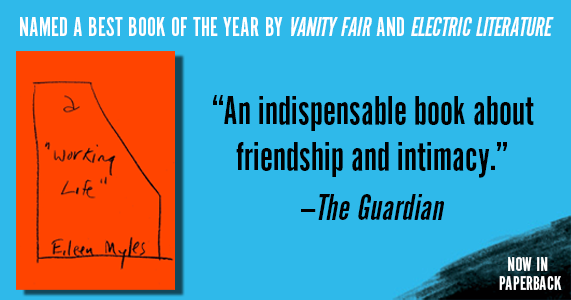I WAS TRAVELING farther south. The villages were small and poor; each time I stopped in one, a crowd gathered around my car and the children followed my every move.
I decided to spend a couple of days in a bare whitewashed village to rest and have my clothes washed and mended. The woman who undertook the job for me explained that she could get it done promptly and efficiently because she employed a helper–a young orphan girl who had to support herself. She pointed to a girl staring at us from a window.
When I returned to collect my laundry the next day, I met the girl in the front room. She only occasionally lifted up her eyes to me. Whenever our eyes met, she would attempt to conceal her interest in me by bending her head lower and lower over her sewing.
While I was transferring some of my documents to the pocket of my freshly pressed jacket, I noticed the curiosity with which she glanced at the plastic credit cards I had placed momentarily on the table.
I asked her if she knew what they were; she replied that she had never seen anything like them before. I told her that with any one of these cards one could buy furniture, bed linen, kitchenware, food, clothing, stockings, shoes, handbags, perfumes, or almost anything else one wanted without paying any money.
Nonchalantly I continued explaining to her that I could also use my cards in the most expensive stores in the nearby town, that just to show them would be enough to have food served to me in any restaurant, that I could stay in the best hotels, and that I could do all this for myself as well as for anyone else I chose. I added that because I liked her and thought she looked nice, and because I sensed that she was being mistreated by her employer, I would like to take her away with me. I f she wished, she could stay with me as long as she liked.
Still without looking at me she asked, as if wanting to be reassured, whether she would need to have any money. Again I told her that neither she nor I would need any money provided we had the cards with us and wanted to use them. I promised her that the two of us would travel to different cities and even countries; she wouldn’t have to work or do anything other than take care of herself, I would buy her anything she’d want, she could wear beautiful clothes and look lovely for me and change her hair styles or even the color of her hair as often as she wished. For this to come about, I said, all she had to do was to leave her house late that night without a word to anyone and meet me at the road sign on the out* skirts of the village. Upon reaching the big town, I assured her, a letter would be sent to her employer explaining that like so many girls before her, she had left home in order to find a job in the big city. Finally I told her I would be waiting for her that night, and I very much hoped she would come.
The credit cards lay on the table. She got up and stared at them with reverence in which disbelief mingled; she stretched her right hand forward as if to touch them, but quickly withdrew it I picked up a card and handed it to her. She held it gingerly between her fingers like a sacramental wafer, raising it to the light to inspect the numbers and letters printed on it.
That evening I parked my car in some bushes several yards from the road sign. Before it grew completely dark, many carts passed on their way from the market to the village, but no one noticed me.
Suddenly the girl appeared from behind me, short of breath and frightened, clutching a bundle of her belongings. I opened the car door, and without a word, beckoned her into the rear seat I started the engine promptly, and only after we had left the village did I slow down and tell her that she was now free and that her days of poverty were over. She sat very quietly for a while and then, uncertain, asked me if I still had my cards. I removed them from my pocket and handed them to her. A few minutes later I could no longer see her head in the rear-view mirror: she had fallen asleep.
We arrived in the city late the next morning. She awoke and glued her face to the window, watching the traffic. Suddenly she touched my arm, pointing to the large department store we were passing. She would like to find out, she said, whether it was true that my cards exercised more power than money did. I parked the car.
Inside the store she clung to my arm, and I felt the palm of her hand damp from excitement She had never been in the city before, she confessed, nor even in a small town, and she couldn’t believe so many people could gather in one place and yet leave so many things still to be bought She pointed at dresses she liked, and she agreed to my few suggestions of the things that would be most becoming for her. Assisted by two shopgirls who looked at my companion with obvious envy, we selected several pairs of shoes, gloves, stockings, some underwear, a number of dresses and handbags, and a coat.
Now she was even more frightened. When I asked her whether she was afraid that my cards could not pay for all that we had chosen, she tried to deny her fear at first, then finally admitted it Why, she asked me, would so many people in her village labor all their lives to earn enough money to pay for all we had bought, when I, who was not a famous soccer player or movie star, not even a prelate, seemed to have no need of any money at all to acquire everything I wanted.
When all our purchases were packed, I handed the cashier one of the cards; she thanked me politely, disappeared for a moment, and then came back and returned the card with the bill of sale. My friend stood behind me, eager to grab the box but still afraid to do so.
We left the store. When we got into the car, the girl opened the package and looked over her things, touching them, sniffing them, touching them again, closing and opening the box. As I drove off, she began to try on the shoes and gloves. We pulled up in front of a small hotel and went inside. Disregarding the hotel clerk’s knowing glance, I requested a suite of adjoining rooms. My luggage was carried upstairs, but the girl insisted on carrying the box herself, as though fearing it might be taken from her.
In the suite, she went to her room to change and returned dressed in a new gown. She paraded in front of me, moving awkwardly in her new high-heeled shoes, looking at herself in the mirror, returning to her room again and again to try the other outfits.
The remaining packages containing various articles of underwear were delivered by the store in the late afternoon. By then the girl was slightly giddy from the wine we had drunk at lunch, and now, as if trying to impress me with her newly acquired worldliness she must have learned from film and glamour magazines, she stood before me, her hands on her hips, her tongue moistening her lips, and her unsteady gaze seeking out my own.
There were several of us, all archeological assistants, working on one of the islands with a professor who for years had been excavating remnants of an ancient civilization that had flourished fifteen centuries before our era.
It was an advanced civilization, the professor claimed, but at some point a massive catastrophe had wiped it out. He had challenged the prevailing theory that a disastrous earthquake, followed by a tidal wave, had struck the island. We were collecting fragments of pottery, sifting through ashes for the remains of artifacts, and unearthing building materials, all of which the professor catalogued as evidence to support his as yet unpublished work.
After a month I decided to leave the excavations and visit a neighboring island. In my haste to catch the ferry I left without my paycheck, but I obtained the promise that it would be forwarded on the next mail skiff. I could live for one day on the money I had with me.
After arriving I spent the entire day sightseeing. The island was dominated by a dormant volcano, its broad slopes covered with porous lava rock, weathered to form a poor but arable soil.
I walked down to the harbor; an hour before sunset, when the air was cooling, the fishing boats put out for the night I watched them slide over the calm almost waveless water until their long, low forms vanished from sight The islands suddenly lost the light reflected from their rocky spines and grew stark and black. And then, as though drawn silently beneath the surface, they disappeared one by one.
On the morning of the second day I went down to the quay to meet the mail skiff. To my consternation my paycheck had not arrived. I stood on the dock, wondering how I was going to live and whether I would even be able to leave the island. A few fishermen sat by their nets, watching me; they sensed that something was wrong. Three of them approached and spoke to me. Not understanding, I replied in the two languages I knew: their faces became sullen and hostile, and they abruptly turned away. That evening I took my sleeping bag down to the beach and slept on the sand.
In the morning I spent the last of my money on a cup of coffee. After strolling up the winding streets behind the port, I walked through the scrubby fields to the nearest village. The villagers sat in the shade, covertly watching me. Hungry and thirsty, I returned to the beach again, walking beneath a blazing sun. I had nothing to barter for food or money: no watch, no fountain pen, no cuff links, no camera, no wallet At noon, when the sun stood high and the villagers sheltered in their cottages, I went to the police station. I found the island’s solitary policeman dozing by the telephone. I woke him, but he seemed reluctant to understand even my simplest gesture. I pointed to his phone, pulling out my empty pockets; I made signs and drew pictures, even miming thirst and hunger. All this had no effect: the policeman showed neither interest nor understanding, and the phone remained locked. It was the only one on the island; the guidebook I had read had even bothered to note the fact.
In the afternoon I strolled around the village, smiling at the inhabitants, hoping to be offered a drink or to be invited to a meal. No one returned my greeting; the villagers turned away and the storekeepers simply ignored me. The church was on the largest island of the group and I had no means of getting there to ask for food and shelter. I returned to the beach as if expecting help to rise up from the sea. I was famished and exhausted. The sun had brought on a pounding headache, I felt waves of vertigo. Unexpectedly I caught the sound of people talking in an alien language. Turning, I saw two women sitting close to the water. Folds of gray, heavily veined fat hung from their thighs and upper arms; their full, pendulous breasts were squashed in outsize brassieres.
They sunbathed sprawling on their beach towels surrounded by picnic equipment: food baskets, thermos flasks, parasols, and nets full of fruit A pile of books, heaped up alongside, conspicuously displayed library numbers. They were evidently tourists staying with a local family. I approached them slowly but directly, anxious not to alarm them. They stopped talking, and I greeted them smilingly, using my languages in turn. They replied in another one. We had no common language, but I was very conscious of the proximity of food. I sat down beside them as though I had understood I had been invited. When they began to eat I eyed the food; they either did not notice this or ignored my intense stare. After a few minutes the woman I judged to be the older offered me an apple. I ate it slowly, trying to conceal my hunger and hoping for something more solid. They watched me intently.
It was hot on the beach and I dozed off. But I woke when the two women pulled themselves to their feet, their shoulders and back red from the sun. Rivulets of perspiration streaked the sand that clung to their flabby thighs, the fat slid over their hips as they braced themselves to stoop and collect their belongings. I helped them. With flirtatious nods they set off along the inner rim of the beach; I followed.
We reached the house they occupied. On entering I was hit by another wave of vertigo; I stumbled on a step and collapsed. Laughing and chattering, the women undressed me and maneuvered me onto a large, low bed. Still dazed, I pointed to my stomach. There was no delay: they rushed to bring me meat, fruit, and milk. Before I could finish the meal, they had drawn the curtains and torn off their bathing suits. Naked, they fell upon me. I was buried beneath their heavy bellies and broad backs; my arms were pinioned; my body was manipulated, squeezed, pressed, and thumped.
I was at the dock at dawn. The mail skiff came in, but there was neither a check nor a letter for me. I stood there watching the boat recede into the hot sun that dissolved the morning mist, revealing one by one the distant islands.
©1968 by Jerzy N. Kosinski. Reprinted with permission from Grove Atlantic Inc. All rights reserved.















